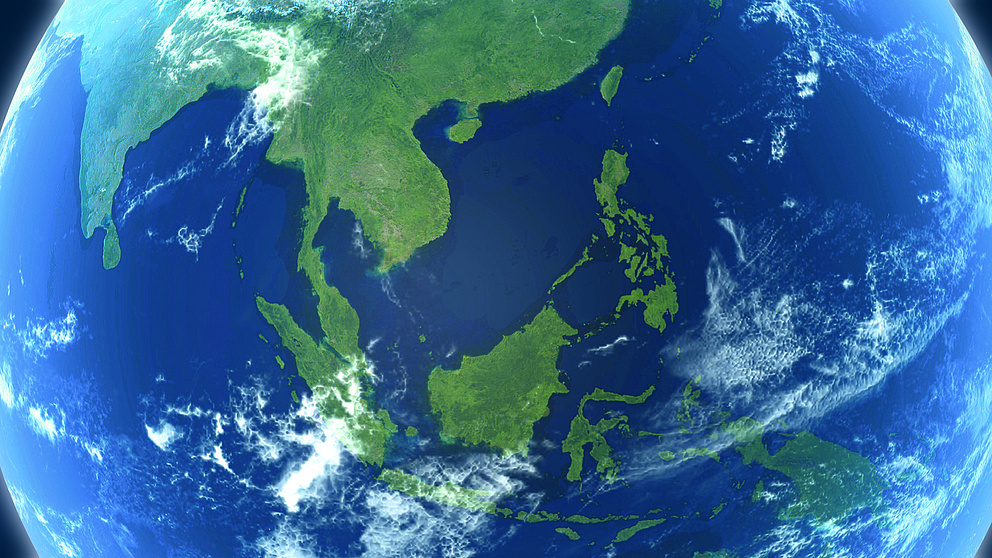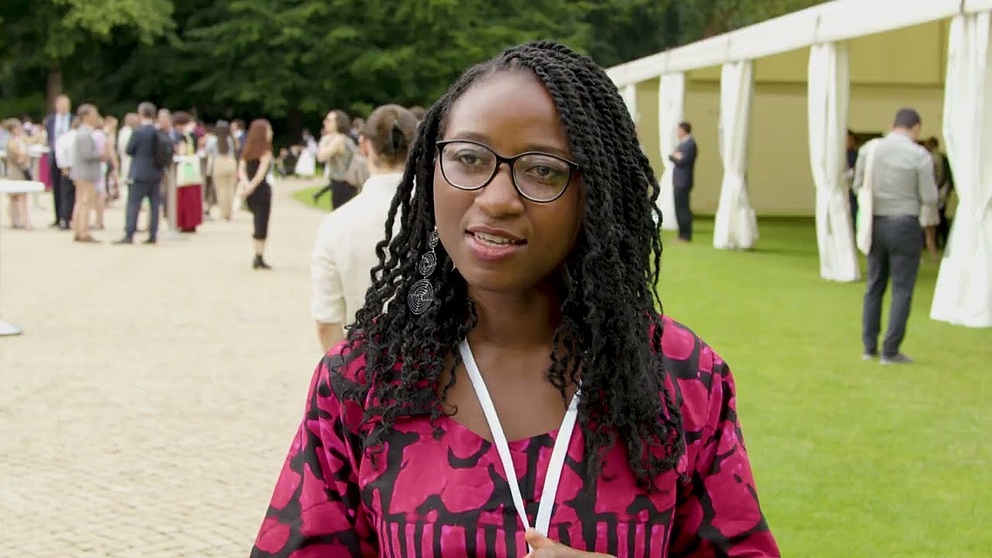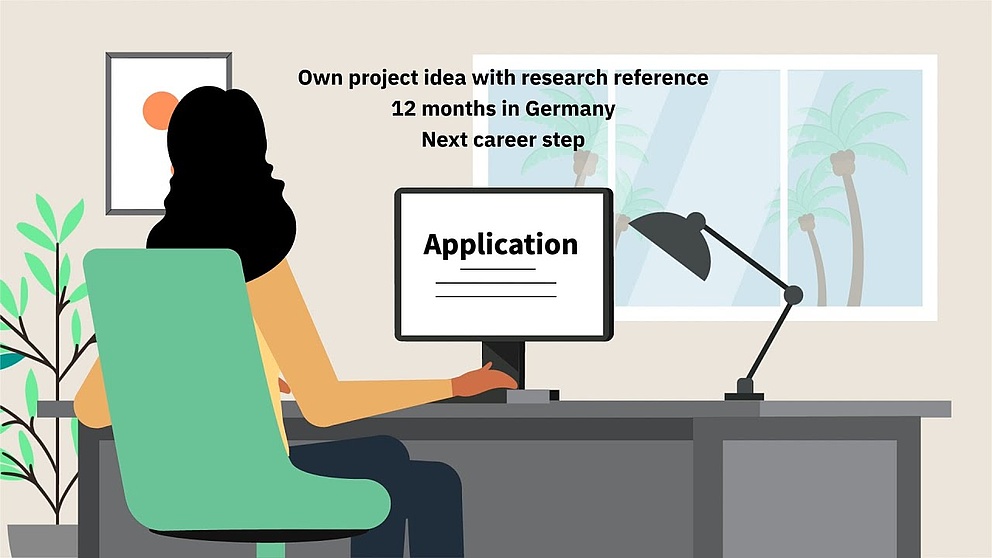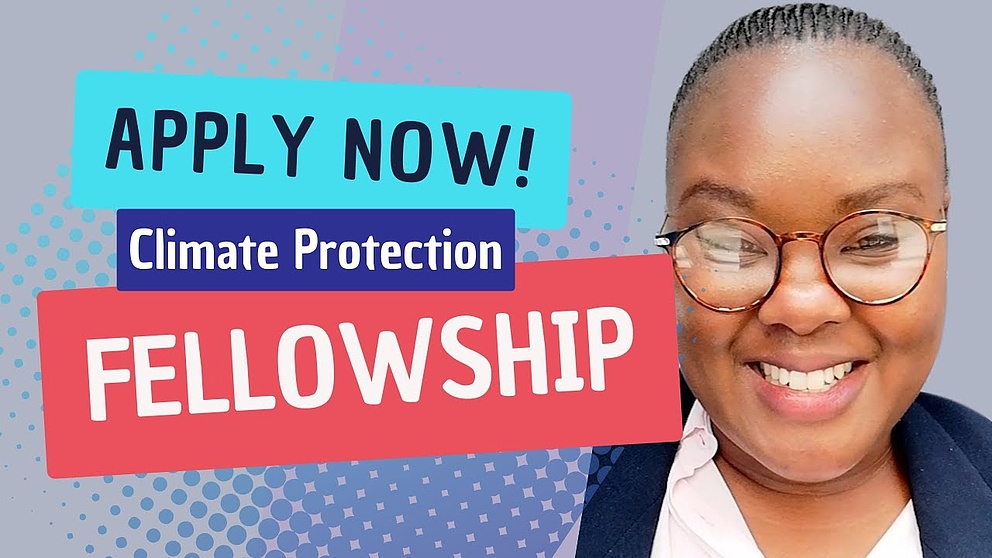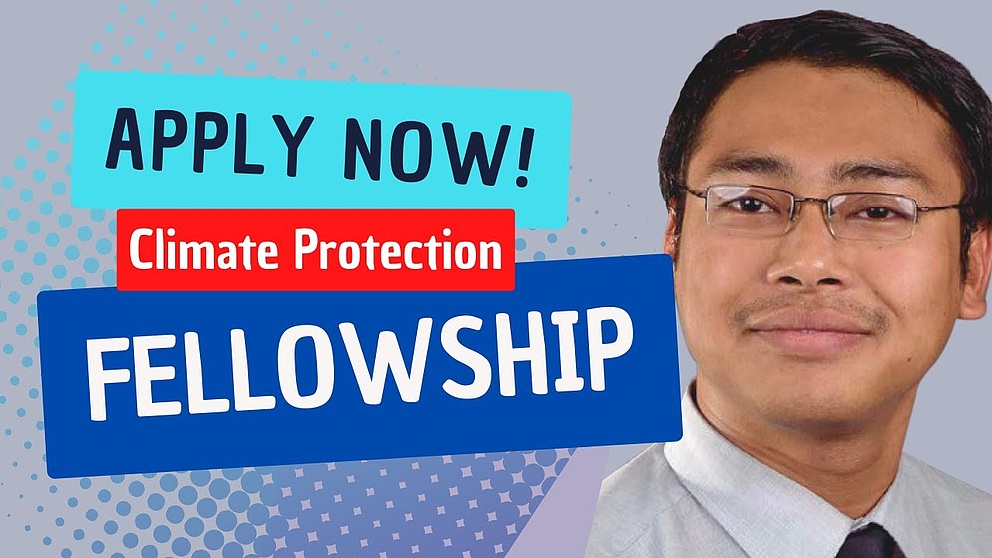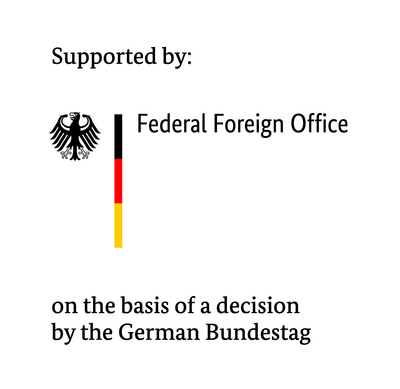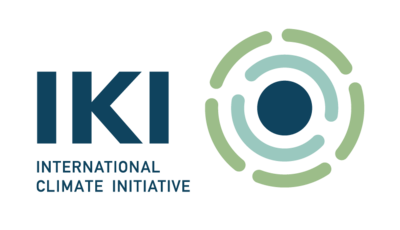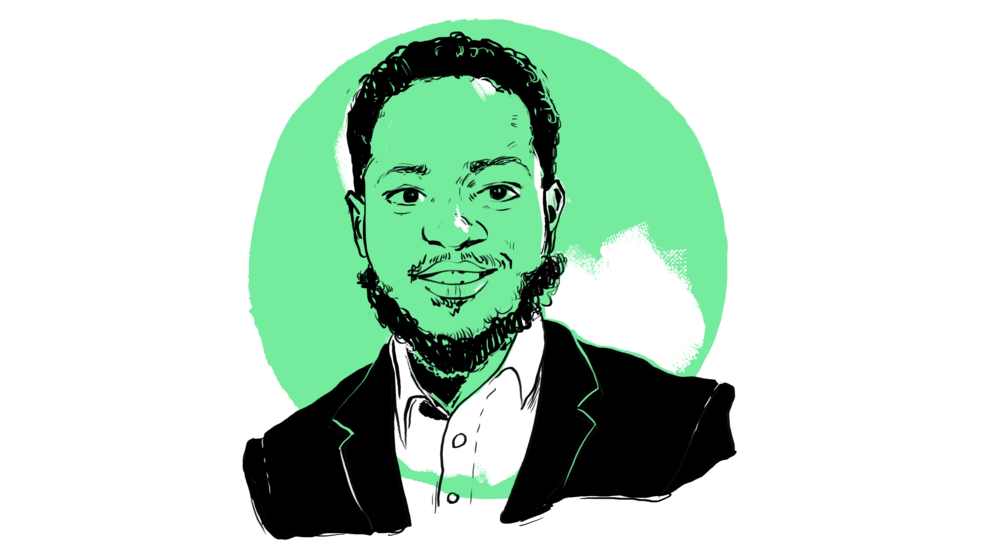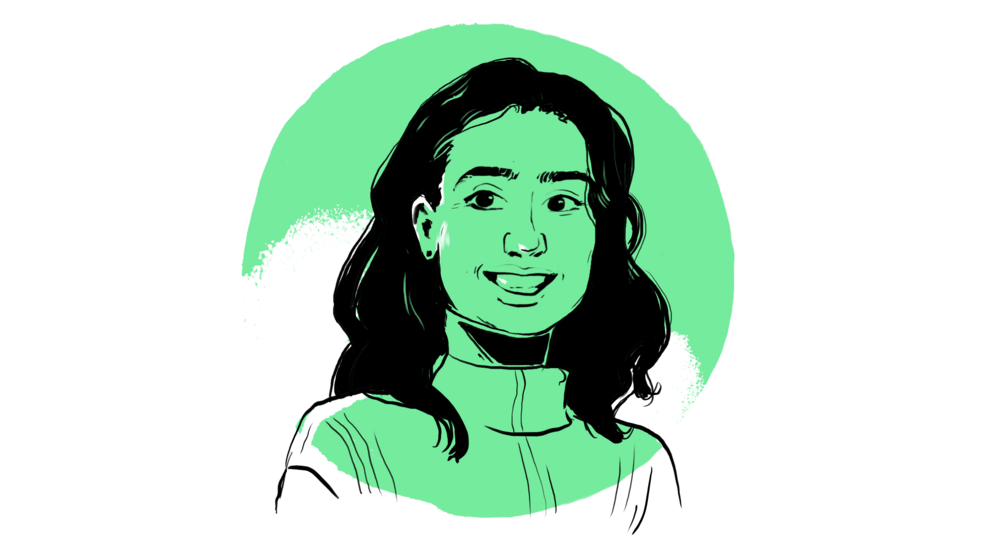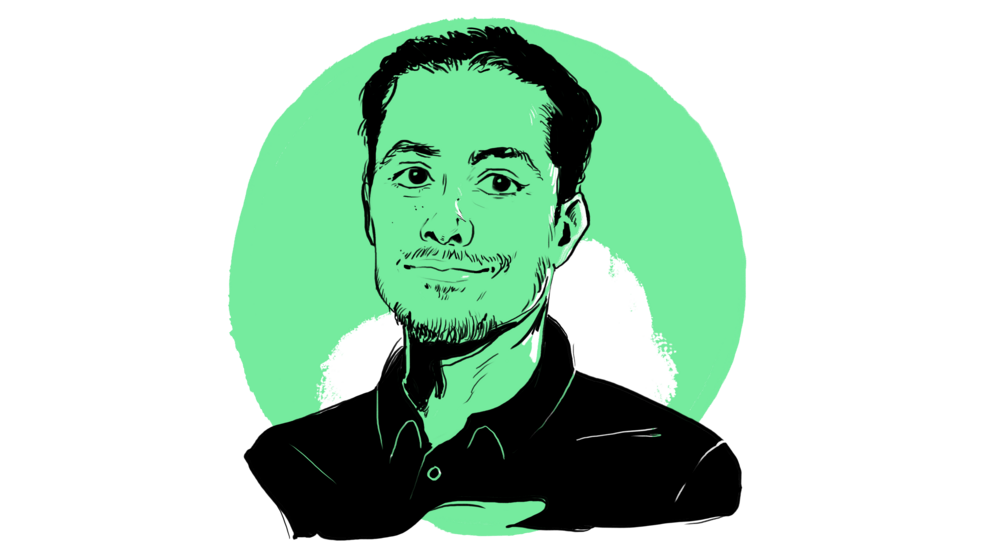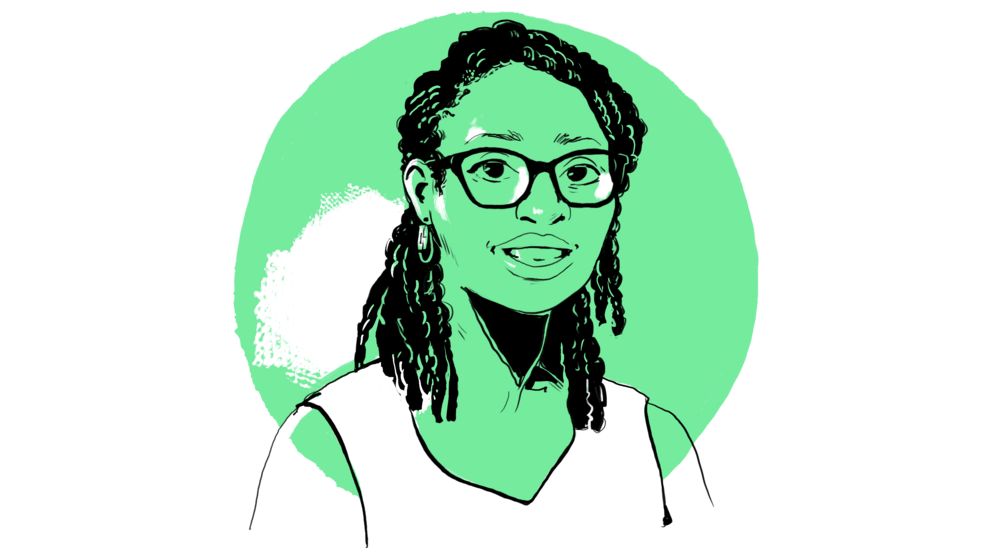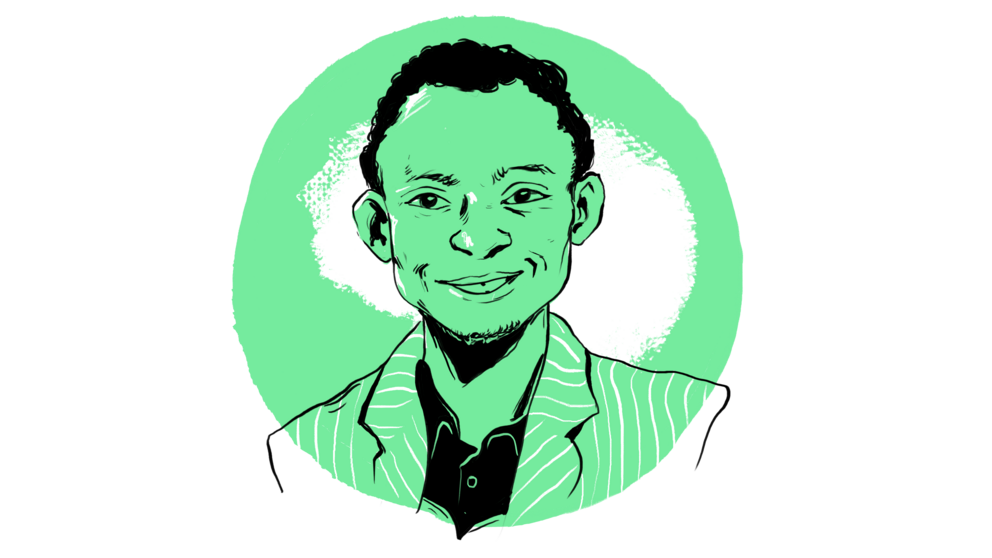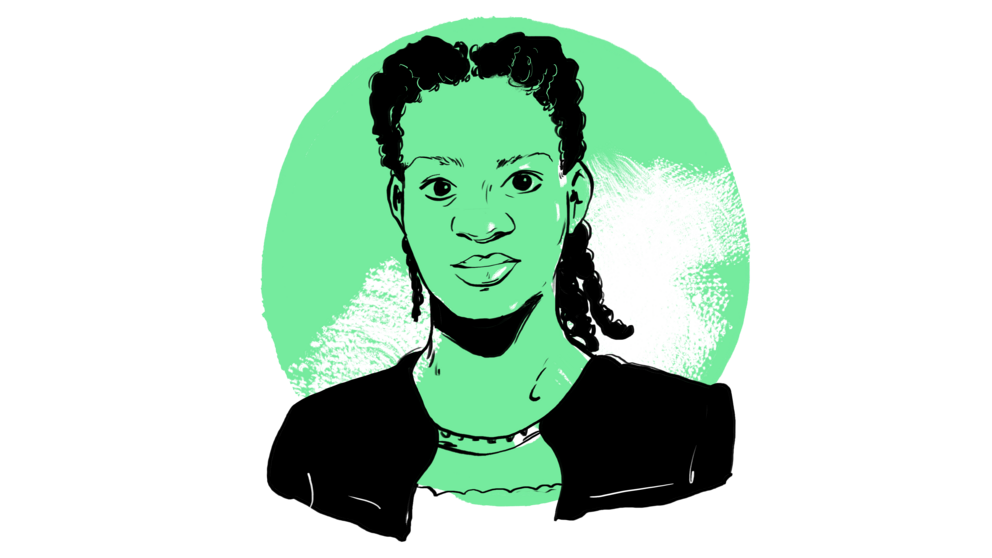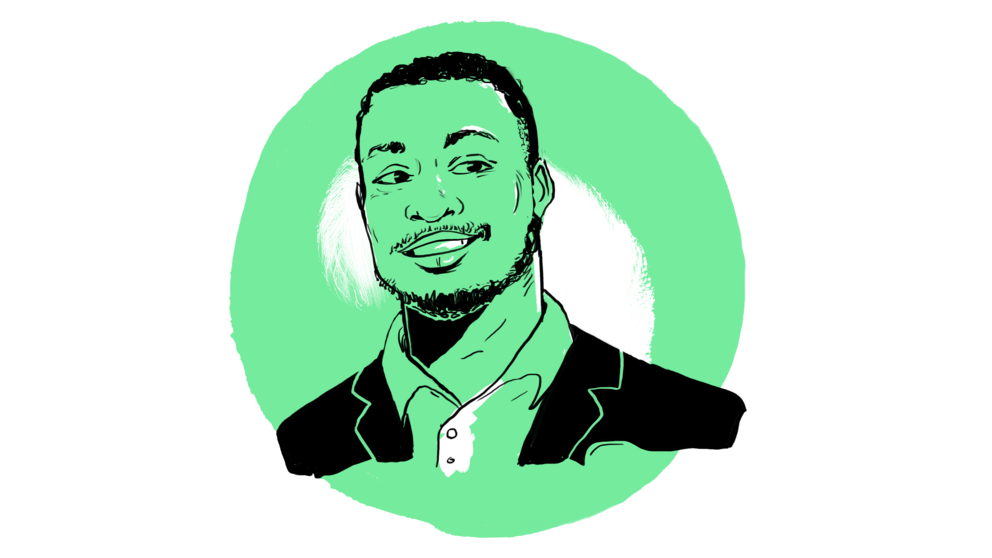Jump to the content
- {{#headlines}}
- {{title}} {{/headlines}}
Fellowship for prospective leaders working practically and postdocs
Are you working academically or practically in climate protection or climate-relevant resource conservation in your country of origin – a non-European developing or transition country (see list of countries, PDF)? Then we invite you to apply for an International Climate Protection Fellowship from the Alexander von Humboldt Foundation.
The Humboldt Foundation aims to achieve a good balance between genders and a high level of diversity among its fellows in all areas. We therefore expressly invite female prospective leaders and members of underrepresented groups to apply.
We welcome all applications, regardless of ethnic, cultural or social background, gender identity, age, religion, worldview, disability or sexual orientation.
If you are a prospective leader you will do a one-year research project in Germany as part of your fellowship; if you are a postdoc, long-term academic research (12-24 months). It should focus on combating climate change, adaptation strategies, preserving ecosystems and biodiversity, or on the sustainable use of the seas and oceans. Sustainability topics relating to natural resources, resource-efficient consumption or urban development are also welcome.
We award up to 15 International Climate Protection Fellowships to prospective leaders working practically and up to five to postdocs each year. The fellowships are funded through the International Climate Initiative. The Initiative (IKI) became the responsibility of the Federal Ministry for Economic Affairs and Climate Action (BMWK) in 2022. The IKI programme cooperates with its founding ministry, the Federal Ministry for Environment, Nature Conservation, Nuclear Safety and Consumer Protection (BMUV), as well as the Federal Foreign Office.
Postdocs from developing and emerging countries whose research work is NOT RELATED to climate protection or climate-related resource conservation may apply for a Georg Forster Research Fellowship , if their research has relevance for the future development of their region of origin. Otherwise there is the possibility for applying for a Humboldt Research Fellowship.
Our sponsorship
The fellowship facilitates the mutual exchange of knowledge, methods and techniques with hosts in Germany; this also extends to questions of practical applicability in your country of origin. We offer you
- as a prospective leader working practically a monthly fellowship amount of 2,500€, 2,800€ or 3,000€ plus ancillary benefits – depending on your training and career level; as a postdoc, a monthly fellowship amount of 3,000€ plus ancillary benefits
- individual support during your stay in Germany
- additional financial support for example for accompanying partners and children, for travel expenses, for full private health insurance or for a German language course
- a three-week introductory event where you can connect with other climate protection fellows, visit businesses and research institutions, and attend cultural events in Germany
- extensive alumni sponsorship, in particular to support long-term connections with your cooperation partners in Germany over the duration of your entire professional career
Hosts receive a monthly allowance for research costs of 800€ for projects in the natural and engineering sciences or 500€ for projects in the humanities and social sciences.
You must meet the following criteria/What is required of you
As future decision-makers and multipliers, you aim to take on the global challenge of climate change through international, cross-border cooperation. The International Climate Protection Fellowship is designed for prospective leaders working practically and postdocs. We invite you to apply for an International Climate Protection Fellowship if you
- engage with climate change issues
- are a citizen of a non-European developing or transition country (see list of countries, PDF) and have been predominantly living and working there
- have initial experience in a leadership role and corresponding leadership skills
- have very good knowledge of English and/or German
In addition, you meet the following criteria as a prospective leader or postdoc:
Prospective leaders working practically
Did you complete your first academic degree (Bachelor’s or comparable degree) during the last twelve years (cut-off date is the application deadline on 10 February 2026)? Do you have relevant practical professional experience in the fields of climate protection or climate-relevant resource conservation following the first university degree (at least 24 months by the application deadline) – or alternatively a Master’s degree in any field (or comparable degree) plus at least twelve months of relevant practical professional experience related to climate issues after the first university degree? If so, apply for an International Climate Protection Fellowship.
Postdocs
Did you complete your first academic degree (Bachelor or comparable degree) during the last twelve years (cut-off date is the application deadline on 10 February 2026)? Do you additionally hold a doctorate that is clearly related to the fields of climate protection or climate-relevant resource conservation and was awarded no more than four years prior to the application deadline (10 February 2026), or will you be completing your doctorate by 31 August of the selection year? Have you published in academic journals and publishing houses that are reviewed according to international standards? If so, apply for an International Climate Protection Fellowship for postdocs.
How to apply
Before applying, you should agree your research project with your independently chosen host.
The application is submitted online via the Alexander von Humboldt Foundation’s homepage. The following application documents are to be included:
- application form with personal information, letter of motivation and research project including communication strategy
- two letters of recommendation (not more than twelve months old) from individuals who can provide information on your professional, personal and/or academic background. The application form contains links where your references can upload their statements. Please forward these links to the selected individuals promptly. You cannot submit your application until the letters of recommendations have been uploaded.
- extensive statement including mentoring agreement from your host in Germany. As soon as you have submitted your application, your host will receive an email containing a link to your application form and the attached documents with a request to provide a host’s statement and submit a mentoring agreement. Please note that your application will not be forwarded to the Humboldt Foundation until your host has submitted the host’s statement and mentoring agreement.
If you have any doubts or questions, please contact us by e-mail (info[at]avh.de) before submitting your application. We are happy to help.
Selection of potential hosts
There is a wide variety of institutions in the field of climate protection or climate-related resource conservation in Germany where the potential hosts work. We have compiled a selection that have, in most cases, already hosted Climate Protection Fellows. In some cases you will find links to specific examples of research projects conducted:
- Beuth University of Applied Sciences
Fachbereich Maschinenbau, Veranstaltungstechnik, Verfahrenstechnik - University of Greifswald
Institute of Botany and Landscape Ecology - Freie Universität Berlin
Berlin Centre for Caspian Regional Studies (Maryam Bakhshi)
Department of Law
Otto Suhr Institute of Political Science – Environmental Policy Research Centre - Hamburg University of Applied Sciences
Fakultät Life Sciences, Department Verfahrenstechnik - Osnabrück University of Applied Sciences
Faculty of Engineering and Computer Science - Trier University of Applied Sciences
Institute for Applied Material Flow Management - Humboldt-Universität zu Berlin
Geography Department
Institute for Economics and Social Sciences of Agriculture
Faculty of Law - Technische Universität Berlin
Department of Ecology - Clausthal University of Technology
Clausthaler Umwelttechnik-Institut (CUTEC) - Technische Universität Dresden
Faculty of Environmental Sciences
Institute of Waste Management and Circular Economy
Institut für Bauklimatik (Pulat Salikhov)
Institute of Power Engineering
Institute of Forest Economics and Forest Management Planning
Institut für Internationale Forst- und Holzwirtschaft
Institut für Photogrammetrie und Fernerkundung - United Nations University Bonn
- University of Bayreuth
Plant Ecology Group - University of Bonn
Department of Geography
Meteorologisches Institut
Center for Development Research (ZEF) (Gabriel Antwi-Boasiako) - University of Freiburg
Chair for Landscape Management
Chair of Silviculture - University of Göttingen
Institute of Geography - University of Hamburg
Research Unit Sustainability and Global Change - Leipzig University
Faculty of Biosciences, Pharmacy and Psychology - University of Münster
IInstitute of Landscape Ecology, Biosphere-Atmosphere Interaction
Institut für Umwelt- und Planungsrecht (Huihui Liu) - University of Potsdam
Chair of International Politics - University of Stuttgart
Institute for Sanitary Engineering, Water Quality and Solid Waste Management - University of Tübingen
Institute of Evolution and Ecology - University of Wuppertal
New Manufacturing Technologies and Materials (Arne Röttger) - University of Würzburg
Department of Animal Ecology and Tropical Biology (Ravikash Prasad)
- Alfred Wegener Institute, Helmholtz centre for polar and marine research (AWI), Bremerhaven
- German Aerospace Center (DLR)
German Remote Sensing Data Center (DFD), Oberpfaffenhofen - Ecologic Institute for International and European Environmental Policy, Berlin
- Fraunhofer Institute for Systems and Innovation Research, Competence Center Sustainability and Infrastructure Systems
- Helmholtz-Zentrum Geesthacht, Centre for Materials and Coastal Research
- Helmholtz Zentrum München – German Research Center for Environmental Health
- Helmholtz Centre Potsdam – GFZ German Research Centre for Geosciences
- Helmholtz Centre for Environmental Research – UFZ, Leipzig (Wolke Tobón Niedfeldt, Abdelrhman Mahmoud Shaaban Mohamdeen)
- Institute for Advanced Sustainability Studies e.V. (IASS), Potsdam
- Leibniz Institute of Ecological Urban and Regional Development, Dresden
- Leibniz Institute for Baltic Sea Research, Warnemünde
- Leibniz Institute of Plant Genetics and Crop Plant Research (IPK), Gatersleben
- Leibniz Centre for Agricultural Landscape Research (ZALF), Müncheberg
- Leibniz Centre for Tropical Marine Ecology, Bremen (Adam Ceesay)
- Max Planck Institute for Human Development, Berlin
- Max Planck Institute for Biogeochemistry, Jena
- Museum für Naturkunde – Leibniz Institute for Evolution and Biodiversity Science, Berlin
- NewClimate Institute Berlin
- Potsdam Institute for Climate Impact Research (PIK)
- Senckenberg Biodiversity and Climate Research Centre (BiK-F), Frankfurt am Main
- Wuppertal Institut für Klima, Umwelt, Energie gGmbH
- Centre for European Economic Research (ZEW), Mannheim
- adelphi, Berlin (Aída Rocío García)
- A.T. Kearney GmbH, Düsseldorf
- atmosfair, Berlin (Anang Bagus Setiawan)
- Climate Analytics gGmbH, Berlin
- German Development Institute, Bonn
- Ecofys, Köln
- Germanwatch e.V., Bonn
- Independent Institute for Environmental Issues (UfU), Berlin (Thi Binh Minh Hoang)
- Mercator Institute for China Studies (MERICS), Berlin
- Öko-Institut e.V., Berlin
- Bundesanstalt für Materialforschung und -prüfung (BAM)
- Alliance 90/The Green Party, Berlin
- Deutsche Gesellschaft für Internationale Zusammenarbeit (GIZ), Eschborn
- Deutsches Institut für Lebensmitteltechnik e.V., Quakenbrück
- Deutscher Wetterdienst, Offenbach
- International Carbon Action Partnership (ICAP), Berlin
- International Council on Clean Transportation Europe, Berlin
- SunCoal Industries GmbH, Ludwigsfelde (Shalab Poudyal)
- Thema1 GmbH, Berlin
- German Environment Agency, German Emissions Trading Authority, Berlin (Elizabeth Mosqueda, Danira Baigunakova)
Timeframe: application, selection, fellowship
- Applicants
- Foundation
- Notification
| Application procedure | Fellowship |
|---|---|
|
|
Selection procedure
A selection committee comprised of researchers from academia and industry working in relevant fields decides who will be awarded an International Climate Protection Fellowship. The peer review is conducted largely on the basis of three selection criteria:
- academic and professional career (determination, mobility, professional qualifications, academic success, only in the case of applicants with a doctorate: quality of key publications)
- leadership skills in the area of climate protection
- research project (quality, originality, innovative strength, feasibility, relevance to climate protection, practical relevance in the recipient’s country of origin)
An individual’s personal and educational background – including and especially with regard to equal opportunities and accessibility – are also taken into account in the selection procedure.
Please note
The closing date for applications is 10 February 2026.
As you plan your submission, please be aware that your application will only be submitted to the Humboldt Foundation after your host has submitted their host’s statement and mentoring agreement. We therefore recommend that you send your application to your host at least one week before the application deadline (10 February).
The Selection Committee aims to issue invitations to suitable candidates by the end of June for a multi-day virtual selection meeting in September, where applicants have the opportunity to present their proposals. An independent Selection Committee will choose the fellowship recipients at this meeting. Applicants must always abide by the rules of good scientific practice (PDF) and the principles of scientific ethics. Please take note of our information on dealing with generative AI in the selection area.
You may not apply if you have previously received funding from the Humboldt Foundation through the fellowship and awards programmes. In such cases, our alumni programme is available to you.
All the best for your application!
Questions & answers
No, in this case a language certificate is not required.
For those with multiple degrees, the valid date is the completion date of the first Bachelor's (or comparable) degree.
The relevant date is that of completing the final requirement for your (Bachelor’s) degree (e.g. final examination, defence of thesis, oral final examination). This date will usually be included on your certificate alongside the date of issue.
The key date for calculating the period after your first university degree (Bachelor's or equivalent) is the application deadline of the ongoing selection round (10 February 2026).
Unfortunately, we cannot consider your application if you completed your first university degree (Bachelor's or equivalent) more than twelve years ago. The key date for calculating the period after your first university degree is the application deadline. If you have any questions or anything is unclear, please send us your CV so we can advise you (info[at]avh.de).
To apply to the International Climate Protection Fellowships programme for prospective leaders working practically, you must have relevant professional experience in the fields of climate protection or climate-relevant resource conservation following your first university degree (usually a minimum of 24 months by the time of the application deadline; if you hold a master’s degree, the requirement is reduced to a minimum of 12 months). The relevance of your work to climate protection must be clearly evident from your professional activities.
In case you do not yet possess sufficient professional experience in the field of climate protection or climate-related resource conservation (at least 24 months at the time of the application deadline), you may still apply if you alternatively have a Master‘s degree in any field (or comparable degree) plus at least twelve months of relevant professional experience related to climate issues after the first university degree. You may apply for an International Climate Protection Fellowship for postdocs if you hold a doctorate or comparable academic degree (Ph.D., C.Sc. or equivalent) in the field of climate protection or climate-related resource conservation and completed your doctorate less than four years prior to the application deadline (10 February). In case you are still in the process of completing your doctorate, you may apply if you will have completed it until 31 August of the selection year.
Periods in which you interrupted your professional activities or your further studies following your first academic degree (Bachelor’s or equivalent) in order to rear children may be taken into account as career breaks after examination. The proportionate offsetting of such periods is also possible. Please always indicate child-rearing periods when filling in your application form.
Mothers can claim two extra years for each child born after their first academic degree plus any further verifiable parenting periods. Fathers and other persons responsible for raising children are only credited with verifiable parenting periods.
In general, you may apply if you completed your first academic degree (Bachelor's or equivalent) less than twelve years before the application deadline. Recognized child-rearing periods may correspondingly extend this maximum timeframe during which the submission of applications is possible. The extension is limited to six years.
Please contact info[at]avh.de if you have any questions.
Periods in which you interrupted your professional activities or your further studies following your first academic degree (Bachelor's or equivalent) in order to perform military or alternative service, to care for close relatives, due to long-term illness or, for example, to care for children or due to the closure of institutes during a lockdown imposed to control an epidemic may be taken into account as career breaks after examination. The proportionate offsetting of such career breaks is also possible. Please always indicate career breaks when filling in your application form.
Job hunting and unemployment do not count as career breaks.
In general, you may apply if you completed your first academic degree (Bachelor's or equivalent) less than twelve years prior to the application deadline (10 February). Recognized career breaks may correspondingly extend this maximum timeframe during which the submission of applications is possible. The extension is limited to six years.
Please contact info[at]avh.de if you have any questions.
Yes, because the assessment of the previous career is always made on an individual basis at the Humboldt Foundation. Therefore, when filling in the application form, please specify all periods in which you partially or completely interrupted your professional activities or your further studies following your first academic degree (Bachelor’s or equivalent).
The voluntary disclosure of private circumstances may help increase equal opportunities during the selection process. The consideration of your personal circumstances allows for a fairer assessment of your previous career.
Please contact info[at]avh.de if you have any questions.
Yes, because the assessment of the previous career is always made on an individual basis at the Humboldt Foundation. Therefore, when filling in the application form, please specify all periods in which you partially or completely interrupted your professional activities or your further studies following your first academic degree (Bachelor’s or equivalent) in order to perform military or alternative service, to care for close relatives, due to long-term illness, or, for example, to care for children or due to the closure of institutes during a lockdown imposed to control an epidemic.
Job hunting and unemployment do not count as career breaks.
The voluntary disclosure of private circumstances may help increase equal opportunities during the selection process. The consideration of your personal circumstances allows for a fairer assessment of your previous career.
Please contact info[at]avh.de if you have any questions.
Equal opportunities and diversity are important pillars of the Humboldt Foundation’s funding policies. If your career path has been impacted by personal or structural issues, e.g. difficult studying or research conditions, gender-specific discrimination or cultural barriers to mobility, please include this information so that such circumstances can be taken into consideration.
You can find the Humboldt Foundation’s statement on equal opportunities as well as information on the support we provide under Equal opportunities for researchers.
The aim of the programme is to enable prospective leaders working practically and postdocs from non-European developing and transition countries to come to Germany to conduct a research stay here. Applicants must therefore be living and/or working in a non-European developing or transition country at the time of application.
Eligible applicants must not have lived and worked outside a programme country (list of countries, PDF) for more than 90 days within the 18 months preceding the respective application deadline (see list of programme countries). This applies to all stays outside the listed programme countries (including in Germany) regardless of purpose; the days on which the applicant entered and exited a country are counted as full days. Persons who, regardless of their place of residence, have supported themselves for more than 90 days out of the last 18 months with financing from German institutions or studied or worked on a doctoral project at an institution in Germany are not eligible to apply.
If in doubt, please contact us before you submit your application so we can advise you (info[at]avh.de).
No, in such cases an application for an International Climate Protection Fellowship is not possible. If in doubt, send us a seamless CV so that we can then advise you (info[at]avh.de).
Applicants must provide proof of their knowledge of German if this knowledge is necessary to ensure that the research-based proposal can be implemented successfully. Otherwise you must provide proof of good knowledge of English (language certificate required).
The academic host can be anyone who works at a public or private institution in Germany (university, research institute, public authority, non-governmental organisation, ministry, company) and is able to agree that he or she will be your mentor during your proposed stay. In order to ensure that the host in Germany is able to act as mentor, he or she must have a professional relationship to the specialist area of your planned proposal and must be able to provide a workplace for you. In case the academic host is not authorized to provide a workplace, the host’s confirmation of support has to be signed by his or her superior (e.g. executive director or director of the institute).
Individuals with whom you are in a close personal (marriage or civil partnership) or familial (parents, siblings, children) relationship cannot be selected as hosts.
You are free to choose your own academic host in Germany. The Humboldt Foundation does not provide any direct support in finding a host. You can, however, find information on our page Advice on finding a host or start your search for institutions in Germany where you could work with potential hosts via the project data base of the German Federal Environmental Foundation, the GERiT – German Research Institutions, the Klimanavigator and the link list provided by the Helmholtz Centre for Environmental Research. We recommend that you start looking for a host as early as possible.
The host's main responsibility is to provide the right conditions for the successful completion of your proposal in Germany and to mediate the necessary contacts to other partners or institutions. The role of the host can vary depending on individual need and can range from regular contact to close collaboration.
Of course you can cooperate with other partners, institutions etc. in Germany during your stay. You can however only have one official host.
Applicants for the International Climate Fellowship Programme for postdocs may plan their projects with two hosts. If you would like to spend your research stay at two host institutes, separate host’s statements and confirmations that research facilities will be made available are required from both host institutes. If both hosts work at the same institute, they may provide a joint host’s statement, which must however be signed and submitted by each host.
Hosts will receive an allowance amounting to 800€ per month for research projects in the fields of natural sciences and engineering, and 500€ per month for research projects in the humanities or social sciences.
No, the fellowship is not meant to support company employees who intend to work at German headquarters or branches. Applicants suggesting a research project that includes an inhouse training have a rather low chance of success.
No, it is not possible to apply to several fellowships concurrently. Should you be rejected by any of them, you may, however, apply to any other programme as long as you fulfil the formal requirements.
No, the International Climate Protection Fellowship is awarded in order to implement a research project in cooperation with the host in Germany. It neither aims at pursuing (partly) a Ph.D. degree. By accepting the fellowship the fellow commits him- or herself to the objective of the fellowship during the duration thereof.
Anyone who is interested in completing postgraduate studies, a doctoral dissertation or other training in Germany should apply to the programmes offered by the German Academic Exchange Service (DAAD) or other funding organisations.
Under certain circumstances, fellows may conduct research outside Germany during the sponsorship period if this is necessary to successfully carry out the research project (e.g. for field research, archive visits, experiments at specific facilities or cooperation with other institutions) or for personal or organisational reasons (e.g. family obligations, health issues).
To be eligible to conduct stays outside Germany, fellows must carry out their research project at their host institute in Germany for at least six months.
Fellows of the programme for prospective leaders working practically may work on their research project outside Germany for a maximum of three months (only outside the months in which compulsory events are planned). Fellows of the programme Postdocs may be sponsored outside Germany up to 25% of the planned total sponsorship period (only outside the months in which compulsory events are planned).
Additional financial support may be provided if fellows conduct stays at institutions in other European countries.
Conducting research stays outside Germany at the very beginning or the end of the research stay is usually not permitted as stays at these times could put the fellow’s integration and successful completion of the research project at the host institute at risk.
Additional earnings from freelance work or employment or from fellowships in the country where the research stay outside Germany takes place must be reported and will usually be deducted from the fellowship amount.
If the fellow’s own institution does not cover travel expenses, the Humboldt Foundation will pay a single lump sum for return travel. Unfortunately, the Humboldt Foundation will only pay travel expenses for family members in exceptional circumstances.
In principle, it is possible to file parallel applications. You must, however, indicate this on the application form and inform us immediately of any other applications you submit and any other sponsorship decisions that occur while we are considering your application.
Yes. The complete application package must be received online by 10 February 2026. As you plan your submission, please be aware that your application will only be submitted to the Humboldt Foundation after your host has submitted their host’s statement and mentoring agreement. We therefore recommend that you send your application to your host at least one week before the application deadline (10 February).
Each year, there is one selection round for this programme which ends with a Selection Meeting. Interview candidates participate virtually in this.
Details of the fellowship grant and information on potential ancillary benefits can be found in the programme information:
The fellowship enables prospective leaders working practically to spend a year in Germany to implement a research project and postdocs to implement long-term research projects (12-24 months) in Germany.
The following timetable is mandatory for all fellows:
| January - February 2027: | Intensive German course in Germany (optional) |
| March 2027: | three-week introductory seminar at several locations in Germany |
| April 2027 – February 2028: | Work on individual proposals |
| June 2027: | Annual Meeting of the Alexander von Humboldt Foundation, including reception by the Federal President of Germany (optional) |
| Autumn 2027: | Two-week study tour through Germany |
| January/February 2028: | Closing seminar and reception in Berlin |
For postdocs afterwards: continuation of the research proposal for the period applied for, individual trainings and participation in programme events of the Foundation (optional)
The intensive German language course can only be taken immediately prior to the start of the fellowship.
There is no obligation to take part in a language course. However, the Humboldt Foundation recommends that all fellows who know little or no German participate in the two-month intensive language course.
No. The fellowship must be taken up in accordance with the programme timetable as shown above.
The Humboldt Foundation welcomes the idea that fellows´ partners and children should accompany them and encourages this with the aid of family allowances in addition to the fellowship, provided that the family members accompany the fellow for more than three months.
You can find further information on support for single parents and families in the FAQ for women academics and families.
Your letter of motivation should explain what qualifies you as a prospective leader in the climate area. You should also describe the personal and professional goals you wish to achieve with the aid of the fellowship.
You must independently draw up your project and agree it with your host in Germany before submitting your application. You can find further information about the project and its content in the application form.
Please request letters of recommendation from two people who can give well-founded accounts of your professional, academic and personal background as well as your leadership skills, e.g.
- your current supervisor / mentor
- previous supervisors / mentors
Applicants for International Climate Protection Fellowships for postdocs are asked to request a letter of recommendation from their doctoral supervisor. The second letter of recommendation should preferably be written by a reviewer not working at the applicant’s own institute. It should provide well-founded information on the applicant’s professional qualification and leadership potential.
Please note: The host’s statement is not considered a letter of recommendation!
After the application deadline, it is unfortunately no longer possible to submit an application online. In this programme applications sent by other methods are not permitted.
You can only submit your application once. It is, however, possible to save your application and return to it as often as you like prior to submission. Please note, however, that your complete application must reach the Humboldt Foundation by the deadline on 10 February 2026 at the latest (including the host's statement). Substantially incomplete applications may not be considered in certain circumstances.
As soon as you have submitted your application, your host will receive an email containing a link to your application form and the attached documents with a request to provide a host’s statement and submit a mentoring agreement. Please note that your application will not be forwarded to the Humboldt Foundation until your host has submitted all the required documentation for your application. We therefore recommend that you send your application to your host at least one week before the application deadline (10 February 2026).
Your referees upload their letters of recommendation in a secure area of our online platform, adding them to your application form. You can find the links to this area in the application form. Please send these links as early as possible to the designated persons. Once all the documents have been uploaded, you will be notified by email and will then be able to submit your application. You are responsible for ensuring that your documents are complete.
Letter of recommendation should not be more than twelve months old at the time of application.
Certificates in English, German, French, Latin, Spanish or Italian do not need to be certified. If your certificates are in any other language, you must provide certified translations. A translation agency, for example, can assist you with certified translations.
In order to apply, the subject of your doctoral thesis must relate clearly to the fields of climate protection or climate-relevant resource conservation.
The International Climate Protection Fellowship Programme is aimed at professionally experienced prospective leaders working practically. This programme line therefore requires initial relevant climate-related professional and leadership experience outside academia. If you meet this and other formal requirements and you can imagine a professional future for yourself outside academia in the strictest sense, you may also apply for this fellowship as a doctorate holder. In this event, your proposed project should differ clearly from a traditional academic postdoc project and include more practice-oriented climate-relevant aspects.
You may apply if you will complete your doctorate until 31 August of the respective selection year. At the same time your first university degree (Bachelor’s or equivalent) must have been completed less than twelve years prior to the application deadline (10 February 2026).
Sponsorship during the doctorate is, however, not possible.
The relevant date is that of completing the final academic part of the doctoral process (e.g., defence of thesis, doctoral viva). This date will usually be included on your doctoral certificate alongside the date of issue. The key date for calculating the period following your doctorate is the application deadline (10 February 2026).
Periods in which you interrupt your activities following your doctorate in order to raise children, perform military or alternative service, as a result of long-term illness or to care for close relatives or due to institution closures in times of an epidemic-related lockdown may be taken into account as career breaks following examination. The proportionate offsetting of such career breaks is also possible. Please always indicate these periods when filling in your application form.
Job hunting and unemployment do not count as career breaks.
Periods in which you interrupted your professional or scientific activities following your doctorate in order to rear children may be taken into account as career breaks after examination. The proportionate offsetting of such periods is also possible. Please always indicate child-rearing periods when filling in your application form.
Mothers can claim two extra years for each child born after their doctorate plus any further verifiable parenting periods. Fathers and other persons responsible for raising children are only credited with verifiable parenting periods.
Please consider also our FAQs “How will child-rearing periods be considered in the application process?” and “Which other career breaks affect the application process?” explaining the 12-years-limit for the completion of your first academic degree (Bachelor's or equivalent).
If you have any questions, please send us your CV and a list of your publications before you apply so we can advise you (info[at]avh.de).
The International Climate Protection Fellowship programme is aimed at prospective leaders who are active in the field of climate protection and climate-related resource conservation either in academic or practice-oriented work in their countries of origin. The programme is structured according to a fixed schedule including training components (see “What is the timetable of the fellowship?”). The Humboldt Research Fellowship programme is more suitable for basic research, while the Georg Forster Research Fellowship programme is targeted at academics from developing and transition countries wishing to conduct research with relevance to development. In case of doubt, please contact us for advice before submitting an application (info[at]avh.de).
Postdocs may divide their stay in the second sponsorship year up into two further blocks lasting at least three months each.
You must include one to three key publications in your application. Other publications will not be accepted (exception: You may optionally submit published reviews of your key publications by other authors).
If you wish to cite your dissertation as a key publication but have not yet submitted it for printing, please upload the original manuscript of your doctoral thesis.
Before uploading, please check the accuracy of the information provided in your publication lists (complete publication list, list of key publications), in particular with regard to the order and completeness of the information on the authors, the titles of the publications and the publication venues. Inaccurate information could lead to the rejection of your application on formal grounds.
No. Please only cite publications that are already in print, have been accepted for publication or have at least been submitted to a publishing house. Please cite submitted publications without naming the journal or publishing house on your publication list. In the latter case you must include the acknowledgement of receipt from the publisher; in case of publications that have been accepted, please include the letter of acceptance from the publisher. Any other works cited on the list will be deleted.
Exception: Your dissertation may be cited as a key publication even if you have not yet submitted it to a publisher. You may cite your dissertation as a key publication even if you have not yet submitted it to a publisher. If you wish to cite your dissertation as a key publication but have not yet submitted it for printing, please upload the original manuscript of your doctoral thesis.
You yourself should choose the key publications from your publications. You should choose works which present your most important academic results. In cases of multiple authorship you should select those to which you have made a major contribution. When choosing key publications we recommend including works that reflect your more recent publication activity.
Please note that you cannot amend your selection of key publications once the selection process has begun.
If you are already holding or currently doing a PhD, you have to state at least one key publication. You may cite a maximum of three. Surplus key publications will be removed from the list without notifying the applicant.
Please address the particular academic relevance of the results contained in the key publication and briefly explain the significance of the publication for your academic profile (cf. Sample key publications, PDF). In cases of multiple authorship please also indicate your own personal contribution to the publication.
Yes. Please cite all your publications in the complete list of publications, including your key publications. The unpublished dissertation, however, may not be listed in the complete list of publications. In this list the key publications should be cited without explanations (cf. Sample publication list, PDF). Please note that the order of the authors on the publication list corresponds to the order of the authors on the submitted publication. Changing the order is against the Rules of Good Scientific Practice and may result in penalties (cf. Rules of Good Scientific Practice, PDF).
Please note that it is not possible to amend the list of publications submitted to the Humboldt Foundation once the selection process has begun.
Yes, shortly after submitting your application online, we will confirm the receipt by email. Due to the number of applications, we cannot confirm the receipt of further documents separately. If, however, important documents or information should be missing from your application, we will notify you.
After evaluating the application documents, an independent expert committee will decide which applicants will be invited to a Selection Meeting, which lasts several days. This Selection Committee is composed of international leaders from academia and working practically on climate-related issues and decides on the granting of fellowships at the end of the Selection Meeting. The Humboldt Foundation office has no vote on the Selection Committee.
At the Selection Meeting applicants are asked to present their project to the Selection Committee and their co-applicants in a short presentation. This is followed by questions from the Selection Committee regarding the project. Also the candidates present themselves to the Selection Committee in an individual interview. The interview is conducted in English or optionally in German. The Selection Committee will ask questions focused primarily on your professional or academic background, your expertise in the field, your interest in Germany, your career plans as well as the significance the fellowship will have for your further professional career.
In each selection round, the best choice to award the fellowship to in the eyes of the Selection Committee will be selected. Approval or rejection of an application is always directly related to the qualifications of the other applicants.
Those candidates who are not invited to attend the Selection Meeting and their hosts will receive a notice of rejection in the course of June or July. Upon demand (informally by email) we are, of course, prepared to inform you on the reasons for the rejection. This feedback notification will be sent both to you and your host. In light of the large number of applications it will usually take us between four and six weeks to respond to such enquiries.
During the last years 25 to 30 per cent of the applications have been successful.
Your academic and professional development and performance to date, your leadership experience(s) as well as the information regarding your leadership skills and future potential contained in the letter of recommendation will be key in the selection procedure. Further evaluation criteria are the quality, originality, innovative strength and relevance of your project for issues of climate change as well as opportunities for collaboration with your host.
In addition, for applicants holding a PhD or currently doing a PhD the academic qualification as well as the innovation potential of the research project play a central role. In particular, applicants who apply upon completion of their doctoral thesis should ensure that the key findings of the doctoral thesis (or key publications) are already published or have been accepted for publication.
It is possible to re-apply. The new application should, however, differ significantly from the original, rejected application. Generally, a new application makes sense only after you have entered a new phase of your professional or academic development. Submitting a new application that differs little or not at all from the rejected original may result in a formal rejection of the new application.
Cooperation partners
- Federal Foreign Office
- International Climate Initiative
- Federation of German Industries (BDI)
- Centre for International Postgraduate Studies of Environmental Management (CIPSEM), TU Dresden
- German Academic Exchange Service (DAAD)
- German Federal Environmental Foundation
- Deutsche Gesellschaft für Internationale Zusammenarbeit (GIZ)
- RENAC – The Renewables Academy AG

